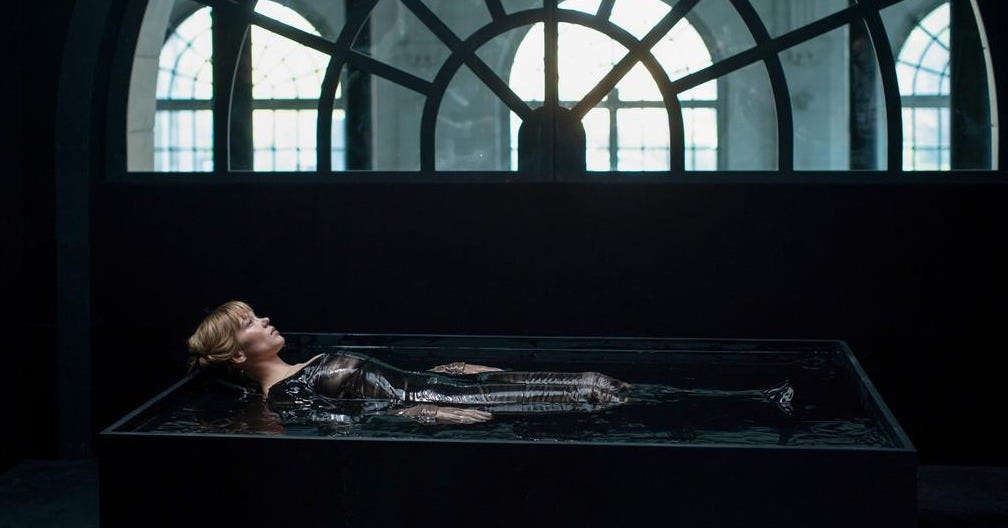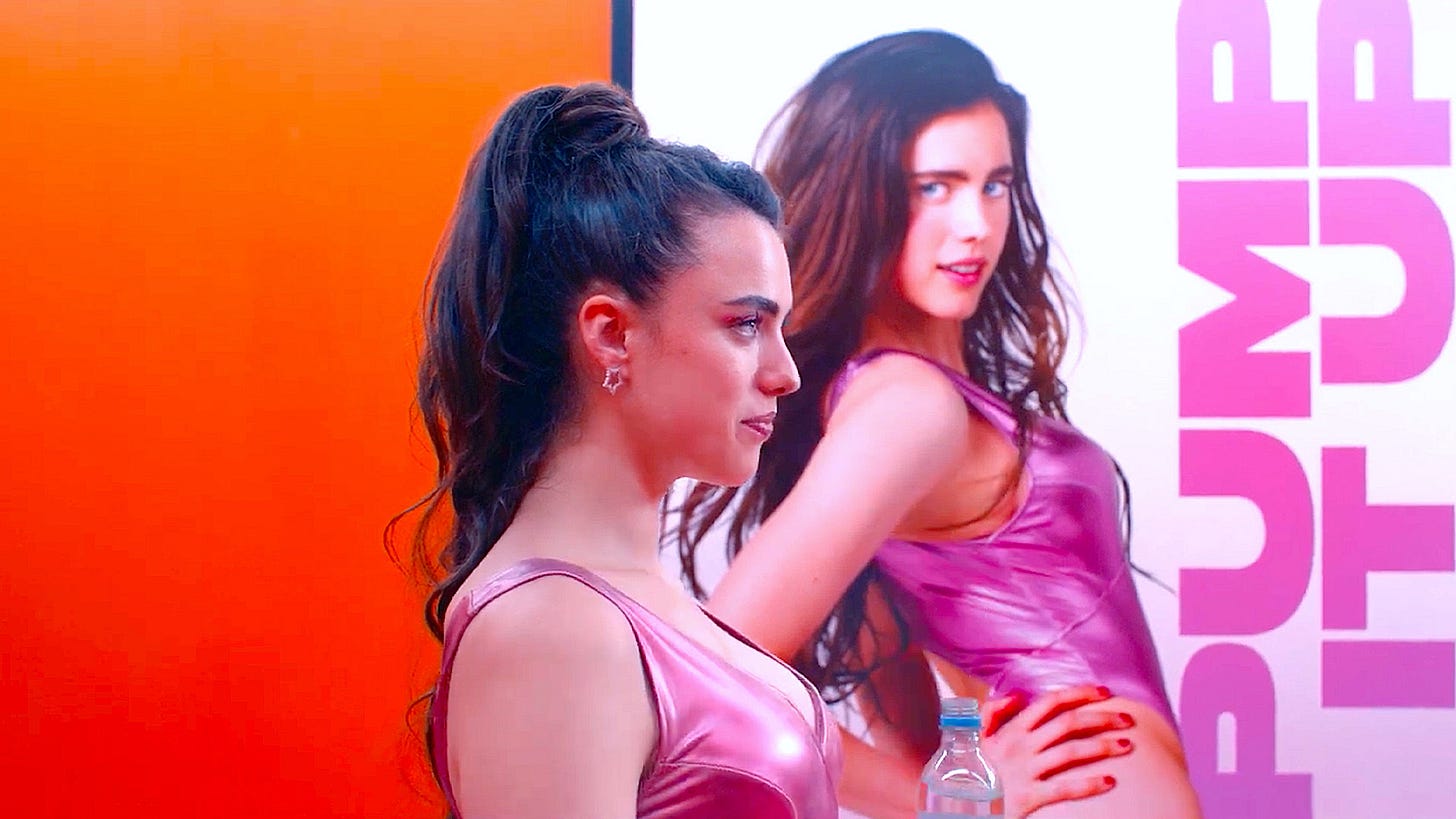Cinema Year Zero's 2024 poll
The best films of 2024, and a welcome to Substack
Welcome to the new look Cinema Year Zero. Really, it doesn’t look much different to the old CYZ. Except we are now a Substack.
After almost five years publishing, we felt weighed down by the clunky, dark age tyranny of Wordpress. We have an extensive archive of writing by some of the best young names in film criticism, but god damn it if we couldn’t find our way around any of it.
Enter Substack. This platform promises more flexibility in the way we release issues, so that our semi-regular drops don’t disappear into the digital ether (keep hoping). We hope to access a broader community of like-minded cinephiles, and most importantly, to have more direct communication with you, the treasured reader!
For new texts on film direct into your inbox, along with information on upcoming events and print editions, please subscribe. And if you fancy throwing us a few bones so that we can keep paying writers and holding fun screening events, well we’ll be forever in your debt (and you’ll get some nice perks too).
There are exciting plans afoot for 2025. But first, some unfinished business: we polled over 30 past contributors and friends of Cinema Year Zero on their highlights of the year in film. We won’t try to read into the results or what they say about the current state of the world (bad!), only to say how exciting it is that over 160 films received a vote, and that films from seven different countries could crack the top 10. If that doesn’t show a contemporary cinephilia hungry for a broad taste of what the medium can offer, then we might as well turn in our badges right now.
The Best Films of 2024
By the Stream (Hong Sang-Soo)
Just as Hong’s career seemed to be taking a clear direction towards looser, more abstract films—leading towards In Water, with its vaguely sketched plot and character shot mostly out of focus—he pivots by making his most narrative driven film in well over a decade. And those muscles have far from atrophied, the scene where a group of students share the kind of people they want to become, their paths of disappointment already set out before them, is one of his most dramatically powerful and straightforwardly moving yet. And when the kind of pathetic man that would have been the all-consuming centre of any of Hong’s movies from the 2000’s returns in a small role, it’s clear how far he’s come from a time when he would have identified most with him, how much broader and warmer his perspective has become. Esmé Holden
Trap (M. Night Shyamalan)
A psychotic, dorky movie in which Shyamalan invites his daughter Saleka into the proverbial multiplex trap. As if this wasn't enough of a lark with Sayombhu Mukdeeprom on blast, Saleka reportedly spent her time recording the soundtrack for this movie on the Shyamalan estate with her sister, Ishana, doing sound mixing for the genuinely dreadful The Watchers next door, which Shyamalan himself basically willed into existence as exec producer. It's so nice to see a father who would do anything for his daughter. Thomas Atkinson
I Saw the TV Glow (Jane Schoenbrun)
After I watched this movie for the first time with my close, nominally cisgender friend, on a laptop between us that we couldn’t connect to the TV, he turned to me and quietly said “I’ve thought about it before… my gender”. I Saw the TV Glow takes moments so personal and private that you’d never think to share them, nonetheless see them right in front of you on a screen; sometimes it’s almost too intimate to bear. When I saw it for a second time at a trans community screening, in a room full of people who had felt these exact pains, I had to look away. EH
Hard Truths (Mike Leigh)
Mike Leigh called out Cannes and Venice for passing on Hard Truths, his latest opus which goes further than most by resisting likability, resisting change, and even asking the viewer to resist empathy with its purgatorial conclusion. Jean Marienne-Baptiste’s depiction of Pansy’s severe depression and OCD as a toxin upon everyone around her is mannered and painfully recognisable in our era of social media meltdowns in an inversion of the Woman’s Pictures of Sirk or Naruse. Her sister’s (Michelle Austin) efforts to make her change, spool wisp of narrative thread.
RIP Dick Pope, who captures contemporary London’s sheen of gentrified sterility. Rows of white houses bounce off the lens cap so harshly that the minor details on the surrounding trees are lost, leaves and branches blurring into mere pixels. Just about the only wildlife on screen is a single fox, who is gawpingly shooed away, London pushed ever further to its edges across the 60 years that Leigh and Pope captured it. For Leigh to drop such a bomb into his 80s is truly bleak, pushing his and Marienne-Baptiste’s vision of contemporary society to new depths. Ben Flanagan
Chime (Kiyoshi Kurosawa)
In a year where the venture capital hive mind has positioned AI as a means to automate even the most basic human joys (more on that at the top of the list), of course one of the year’s best was an NFT. Launched on a “digital video trading platform”, whatever the fuck that means, Chime sees Kiyoshi Kurosawa finding friction with his means of distribution at every turn, a film of haunting sterility and oppressive mundanity where the semiotic grammar of contemporary society is enough to turn even the mildest man mad. At a scant 45 minutes, Chime is first and foremost an exercise in formal distillation and restraint, each camera movement precise, each position clamped down, reducing the everyday to a skeletal frame until all that’s left is the horror underlying it. Shat me up good and proper. Blaise Radley
Nickel Boys (RaMell Ross)
In Nickel Boys, we inhabit the alternating perspectives of Elwood (Ethan Herisse) and Turner (Brandon Wilson) as they navigate the brutality of a Floridian reform camp: we see what they see, we hear what they hear, we approximate their shared and embodied sense-experience. The challenge of committing to such a distinctive formal device is that it might unhelpfully delimit the viewer's perspective—the insistent subjectivity becomes a fey indulgence, a distraction—but with risk comes reward, and by both historicising and fictionalising the racism of 1960s America, RaMell Ross' second feature interrogates the tension of truth and imagination cognate with the birth of cinema. Joseph Owen.
Do Not Expect Too Much from the End of the World (Radu Jude, Romania)
Dropping a whole three places from last year. As we said then: For any high-falutin’ producer who ever wondered about the shit their fixer goes through. Jude’s eighth is a Sisyphean rollick through Bucharest following put-upon production assistant Angela. Proudly idiosyncratic, with a Uwe Boll jumpscare. Kirsty Asher
Juror #2 (Clint Eastwood)
Clint Eastwood is a painter of simple images. In Juror No 2, he offers meditations on the phrase ‘Justice is Blind’ through literal and increasingly figural tableau. With its Thriller framework and Jimmy Stewart-like lead turn from Nicolas Holt, it’s a barnstorming crowdpleaser. But also, a work of intense moral clarity with a harrowing final image. BF
La Chimera (Alice Rohrwacher)
Ancient history is so often simply undiscovered magic beneath our feet. Josh O’Connor’s Arthur cuts a delightfully rumpled Philip Marlowe figure as a grave robber in Italy with a telepathic connection to hidden tombs. Contemporary money grabbing soon butts heads with the ethics of disturbing a burial site, and with the emotional weight of history’s fine craftsmanship. A gorgeously lit film, simultaneously sun dappled and faded like a crumbling baroque facade. KA
The Beast (Bertrand Bonello)
With his latest missive to modern disillusionment, The Beast, director/writer Bertrand Bonello asks: what if the worst thing to come wasn’t the disaster itself, but the cruelty of the peace that follows? Told retrospectively from a future in which AI has finally, conclusively saved humanity from our trifling follies and foibles, and where humans are no more than quietly-chaperoned service engineers, The Beast makes little attempt at sci-fi prescience. Rather, Bonello embraces a brash, almost camp, metaphorical directness to spin his yarn about a society ever-more disconnected from its emotional past, quoting incel manifestos verbatim and finding salvation in the carnal lure of an internet pop-up. Still, this isn’t MAGA cinema for the “back in my day” circle jerkers—speaking at a Q&A at London’s ICA, Bonello disavowed such listless nostalgia, “Things weren't better before, they're just worse now.” A fitting maxim with which to head into the "new" year (with a new CYZ, no less). BR
BONUS: Worst of 2024
The Substance (Coralie Fargeat)
Hollywood’s regular reminder that if you’re a woman with body dysmorphia you’re a vain piece of shit, actually. While Demi Moore’s getting ready scene may have resonated with numerous traumatised 21st century women, even the campest hagsploitation moments can’t detract from how cruelly this film, like so many horror films before it, frames the geriatric female body as the ultimate nightmare. CYZ is proud to note that this film didn’t grace a single vote on any of the 32 ballots submitted this year. We can therefore consign this film to the chicken drumstick bellybutton of film history, and in doing so feel our auras cleansed and our spirits lifted. KA
The Iron Claw (Sean Durkin)
I could hate on The Iron Claw for its funereal encased-in-amber aesthetic or for how desperately it turns the screws on its characters in its attempts to be taken seriously—but such middlebrow dreck is ten-a-penny during awards season. No, what grates most about Durkin’s turgid biopic is how little it seems to care about wrestling beyond its function as a means to beget more misery, every fight limited to strangely apathetic vantage points and formally-defunct close-ups in Durkin’s eagerness to get to the proverbial fireworks factory (read: another comically foreshadowed death). If you want to make a weepie about the downfall of the Von Erich dynasty, at least make me care about wrestling as a medium for melodrama and thunderous artifice in the first place. Why would anyone sacrifice so much for such a dolorous and dull sport? BR
Megalopolis (Francis Ford Coppola)
‘Not so much a vanity project as an insanity project. An appalling piece of filmmaking, a genuinely badly made film.’ These are the words of Mark Kermode, Britain’s leading film critic. Liking Megalopolis is neither here nor there, but more worrying is the smugness of our biggest film brain. ‘It’s not so bad its brilliant, it’s so bad it’s holding your eyelids open with matchsticks while yet more CG waffle goes on’ Unshackled from the BBC, in part due to waning interest in film discourse, Kermode hosts his intellectually incurious movie rants from Scala radio, to a diminished audience. If only he could see how much he and Coppola have in common. BF
Rita (Paz Vega)
Rita isn’t an exceptionally bad film, not really, but it’s the perfect example of a kind of bad film. We are all too familiar with the kind of meaningless content ground through the streaming services, that grey, televisual gunk known as Netflix Slop, well, Rita is Festival Slop. It’s the kind of film that suggests realism through a handheld camera—lightly obscuring its trite, melodramatic storytelling (you might call it Dhontian)—often told through the innocent eyes of a child to justify its simplicity and to heighten (/cheapen) its emotional impact. There are hundreds of films like Rita, and almost none of them ever make it outside of this insular ecosystem, few are seen by anyone but critics. We can only hope that international financiers realise this and cut out the middleman by stopping making them all together. EH
More polls:
Tomorrow: individual ballots, including contributors’ discoveries of 2024, commenary, and more!








